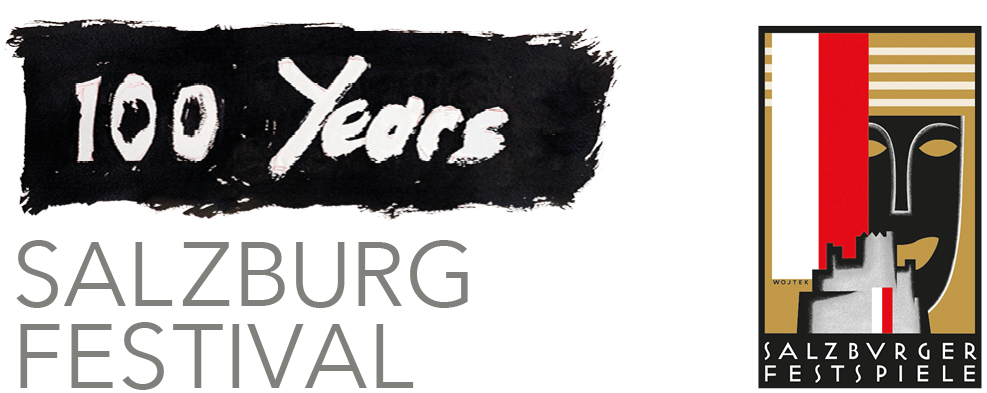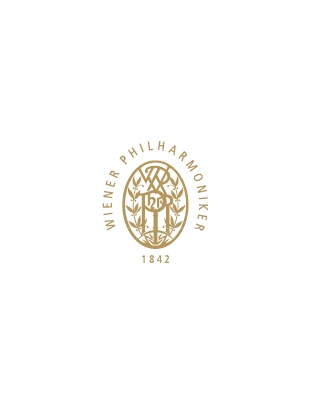26 JULY 2020 TO 31 OCTOBER 2021
NEUE RESIDENZ
MOZARTPLATZ 1
5010 SALZBURG
OPENING HOURS
Tue–Su 9–17
Contact:
secretariat
Gerlinde Kontschieder
+43-662-62 08 08-703
office@salzburgmuseum.at
guided tours
Sandra Kobel
+43-662-62 08 08-722 and 723
kunstvermittlung@salzburgmuseum.at
Head of Press & Marketing
Natalie Fuchs
Salzburg Museum
+43 662 620808-777
natalie.fuchs@salzburgmuseum.at
SoundRoom / SoundBodies – An installation in dialogue with the Vienna Philharmonic Orchestra
Neue Residenz – First floor
Sound and light installation, objects, audio sofa
An audio room with selected recordings1 invites you to explore the sound of the Vienna Philharmonic Orchestra in Salzburg. The Vienna Philharmonic Orchestra and the Salzburg Festival are inseparably linked. They share a common history. Together they have written momentous chapters of music history. Their partnership has forged their reciprocal identity. The City of Salzburg is also often called the orchestra’s ‘second home’. It was here in 1877 that the Vienna Philharmonic Orchestra performed for the first time outside Vienna. Until 1910, they shed their brilliance on Salzburg music festivals. From 1920 on, they supported the Festival Theatre Association with fundraising concerts. Two years later, they played at the first opera of the Salzburg Festival. Since 1925, the summer residence in Salzburg has been a fixed date in the orchestra’s annual calendar. In the 100 years’ history of the Salzburg Festival, the Vienna Philharmonic Orchestra has played about 2,200 opera performances and around 800 concerts. They have established the musical standards for which the Festival is famous all over the world. Three excerpts from concerts since the 1960s have been selected for the audio room. The music pieces convey a repertoire with a special history specifically gleaned by the Vienna Philharmonic Orchestra for Salzburg.
Glossary
The Vienna Philharmonic Orchestra under Herbert von Karajan, 1963
Ludwig van Beethoven: Presto of the fourth movement of the Symphony No. 9 in D minor, Op. 125
Ludwig van Beethoven (born in 1770 in Bonn; died in 1827 in Vienna) is one of the most renowned composers in the world. He developed the First Viennese School to its zenith and paved the way for the Romantic movement.
Many of his works went beyond the boundaries of previously obligatory musical forms and genres: for example his famous Ninth Symphony, which in the final movement includes vocal soloists and a mixed chorus,
with which he composes a utopia of freedom, equality and fraternity embracing all mankind. Beethoven finished his Ninth – and last – Symphony in 1824. It was first performed with great success in Vienna in the same year.
The text he chose for the final movement was the poem Ode an die Freude / Ode to Joy by Friedrich Schiller. In 1985, the main theme of the last movement was chosen by the European Community as the official European
anthem. The symphony has been performed around 30 times at the Salzburg Festival. The selected recording is of a Festival concert in 1963 with Herbert von Karajan (1908–1989) conducting the Vienna Philharmonic Orchestra. This audio document
pays homage not only to one of the most influential personalities of the Festival’s history and one of the most important conductors of the Vienna Philharmonic Orchestra, but also to the dominant personality of this year, Ludwig van Beethoven, whose birth is being celebrated for the 250th time in 2020. In addition, the recording is significant because Herbert von Karajan mostly interpreted the Beethoven repertoire in Salzburg with the Berlin Philharmonic Orchestra; it was a rare occurrence that the Vienna Philharmonic Orchestra and Karajan were heard in Salzburg with Beethoven.
The Vienna Philharmonic Orchestra under Riccardo Muti,2016
Anton Bruckner: Third movement (Scherzo) of the Symphony No. 2 in C minor, WAB 102
Anton Bruckner (born in 1824 in Ansfelden near Linz; died in 1896 in Vienna) was an Austrian composer of the Romantic movement, and also an organist and music teacher. He composed his Second Symphony between 1871 and 1872, finishing it during a summer sojourn at the abbey in St Florian, Upper Austria, where his musical education had started in 1837 and where he eventually worked until 1855 as a teacher and abbey organist. In 1873, he conducted the first performance of the Second
Symphony with the Vienna Philharmonic Orchestra in Vienna. As with many of his works, Bruckner also re-edited his Second Symphony, which has come down to us in several versions. The Scherzo heard here, for instance, was the second movement in the original version, before the Andante. As yet, this symphony has been performed only twice at the Salzburg Festival. The selected recording is of a philharmonic concert at the Salzburg Festival in 2016, with which Riccardo Muti celebrated his 75th birthday. The conductor was born in Naples in 1941 and has been connected to the Salzburg Festival since 1971 when Herbert von Karajan invited him to take over the musical direction of Gaetano Donizetti’s Don Pasquale with the Vienna Philharmonic Orchestra.
Muti has been conducting philharmonic concerts at the Salzburg Festival on a regular basis since 1972. Between 2007 and 2011, he was in charge of the Salzburg Whitsun Festival. Muti calls Bruckner’s Second the ‘most Italian’ of the composer’s works, and his symphonic oeuvre in its totality ‘a quite unique musical gift to God and nature’.
The Vienna Philharmonic Orchestra under Pierre Boulez, 2003
Gustav Mahler: First movement (moderately, not rushed) of the Symphony No. 4 in G major
Gustav Mahler (born in 1860 in Kaliště in Bohemia; died in 1911 in Vienna) was an Austrian composer at the transition from the Later Romantic era to the modern age. In addition, he was active among other things as an important conductor and opera director. Mahler started to compose the Fourth Symphony in 1899 and completed it in 1901. The first performance took place the same year under his baton by the Munich Philharmonic Orchestra in Munich. The symphony has been performed 18 times at
the Salzburg Festival. The selected recording is of a philharmonic concert at the Festival conducted by Pierre Boulez in August 2003. The French composer and conductor Pierre Boulez (1925–2016) guested at the Salzburg Festival for the first
time in 1960. In 1992, Hans Landesmann, then head of concerts and Commercial Director of the Salzburg Festival, dedicated a series of concerts especially to Pierre Boulez. This key focus resulted in the first, fruitful encounters between the Vienna Philharmonic Orchestra and Pierre Boulez, which developed into an intensive, long-term artistic partnership. The Vienna Philharmonic Orchestra has always felt a unique bond to the work of Gustav Mahler. From 1898 to 1901, Gustav Mahler was subscription conductor of the Vienna Philharmonic Orchestra; the cycles included his conducting of the first performance of Anton Bruckner’s Sixth Symphony. The ensemble, under his baton, performed for the first time abroad in 1900 at the Paris World
Exhibition. Between 1897 and 1907, Mahler, in his function as first ‘Kapellmeister’ and director of the Vienna Court Opera, was also the conductor of the Court Opera Orchestra. Like Gustav Mahler, Pierre Boulez, too, was positioned at the threshold to a new kind of music. Both lived at a time of musical upheaval; they wished to break with traditional conventions. This doubtlessly explains Boulez’s special relationship to Mahler’s work.




